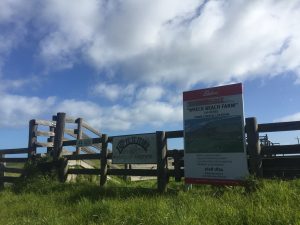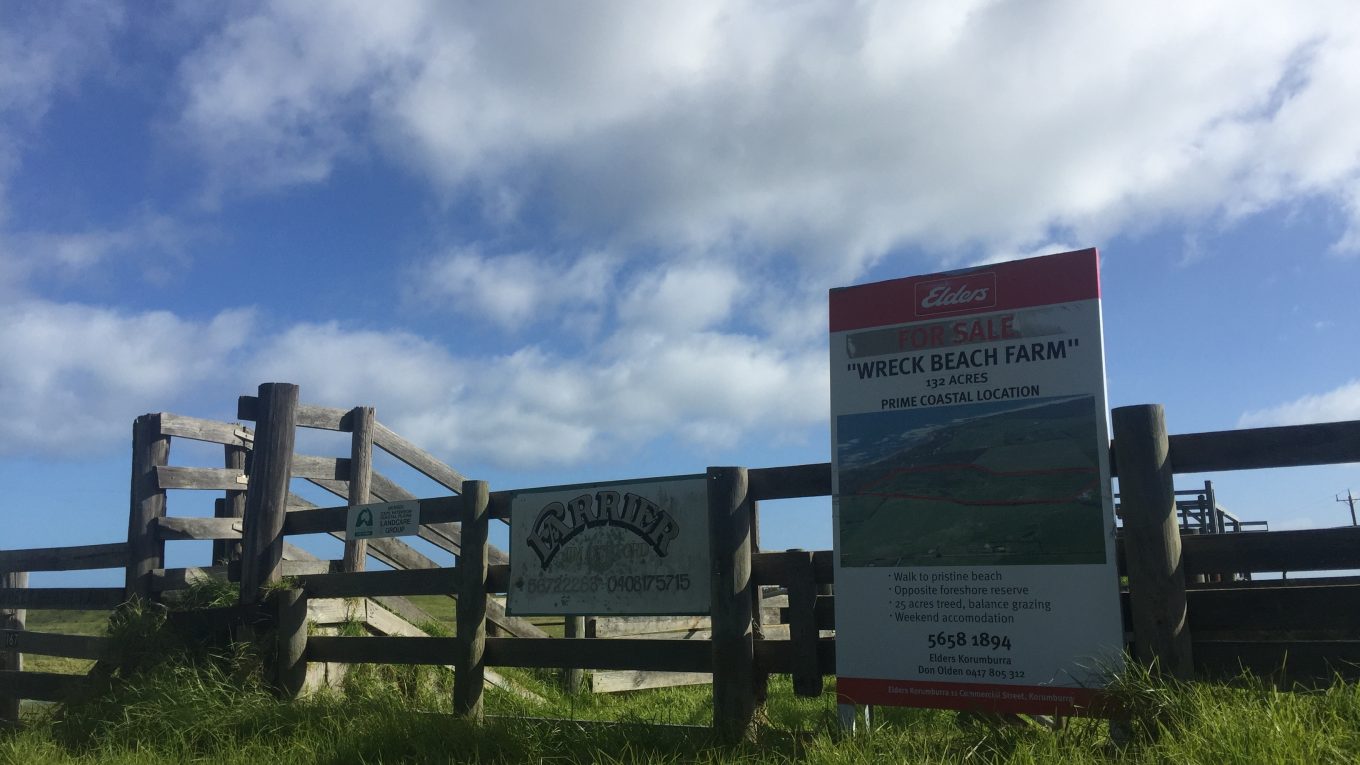Farewell Wreck Beach Farm
 It's mild for mid-winter. Ten or twelve degrees Celsius perhaps and a sou’wester blowing no more than five knots. Standing atop a rusting steel balcony tacked onto the lee side of a five-bay shed I gaze across the paddocks. 132-acres of coastal bush turned farm.
It's mild for mid-winter. Ten or twelve degrees Celsius perhaps and a sou’wester blowing no more than five knots. Standing atop a rusting steel balcony tacked onto the lee side of a five-bay shed I gaze across the paddocks. 132-acres of coastal bush turned farm.
This scrub covered block, located in a south-eastern corner of mainland Australia, was purchased by my grandparents, my father’s parents, in 1951. Following their passing, my parents took custodianship of this place. That was twenty odd years ago.
Mum and dad have agreed to sell, so ownership of this piece of coastal scrub -- the undulating sandy heaths, the meandering creeks, the quiet soaks -- will soon fall under the gaze of new keepers. In the grand sweep of history, just a trifling administrative adjustment but to me and my family it's a gigantean and traumatic change. But enough self serving pity for the moment. Now I am reflective.
I have been fortunate enough to be able to spend some quiet time here before the family connection to this place shifts. I have spent the past few months walking, listening, observing and pondering this beautiful place. I've pondered its past, it's eccentricities and its constantly changing character.
A complex and intricate ecosystem, this place overflows with life, sounds, smells, relationships and movement. The multifaceted connections I observe extend far beyond the arbitrary boundaries of formal ownership that are signified by battered hardwood fence posts and lines of rusting barbed wire.
Countless traces, fragments and remnants of the past have kept me company during my time here. A battered fold down desk nestled into the corner of the shed has been a particularly fond companion. It was was my grandfathers, my mother’s father, The blackwood chair I often sat in, once stood for decades at the kitchen table of my great aunt’s home.
In the time I've spent there has seen me become infatuated by the rutted trails that meander away from the shed out into the paddocks like an interlacing web. They were worn by countless tractor journeys made by my mother, father, and my grandfather. They pass weathered fence posts, rusting star pickets, and lines of twisted wire. Small monuments to the toil, lives, and acts of those who passed before. Those marks – literally encrypted into the land – signify failures, triumphs, and misjudgements. They echo and whisper of those who have passed before.
My reflections and connections to Wreck Beach Farm are but simple observations. The suggest an opening gambit for a more elaborate personal sketch. An attempt to comprehensively articulate and understand my deep, affecting yet often contradictory connection to this special place in my life. That project would be a comprehensive tally of my literacy of this place.
My family has a strong association with this small tract of coastal land, but we are just one association on a continuum of affiliations. The Boon Wurrung of the Kulin – the first custodians and storytellers of this place – have walked the sandy rises and Bracken plains of this coast for millennia. Their middens lay throughout the dunes located just a few hundred metres south of the farm. They teem with bleached shell fragments – abalone, crayfish, periwinkles, limpet, mussels, Turban Shells – from generation upon generation of their king-tide feasts. I’ll miss this place but I know this rupture pales in comparison to the suffering and violence the traditional custodians of these lands and seas have and continue to experience.
So how to reconcile the quandaries and discomforts that I as a fifth-generation white settle experience when inhabiting and connecting with unceded lands? It’s a question I continue to grapple with but for now I’ll just reminisce, mourn and reflect.
